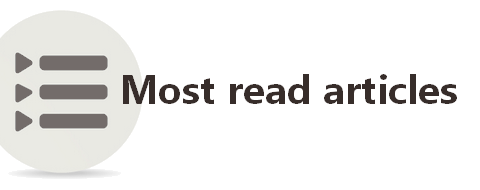Dakar the call for Food Sovereignty was everywhere present !
Already from the march of February 6th it was clear that food sovereignty, in its various aspects, would be one of the major themes of the Forum. The front line banner carried by the marchers set the tune:
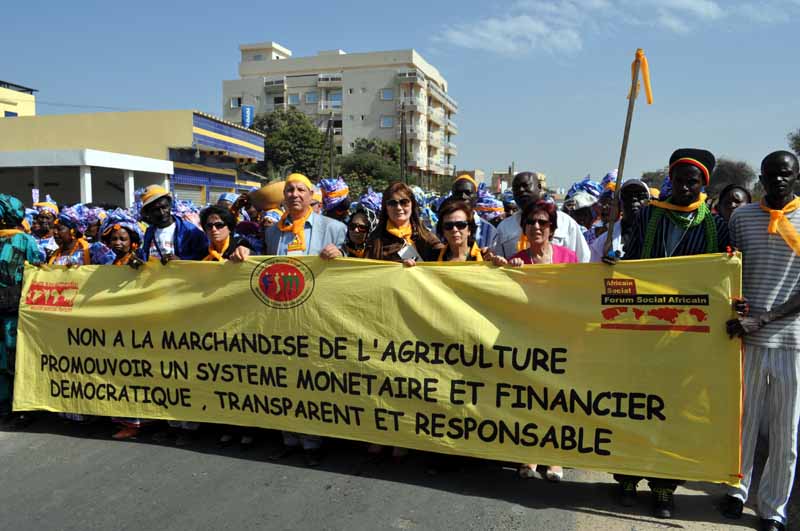
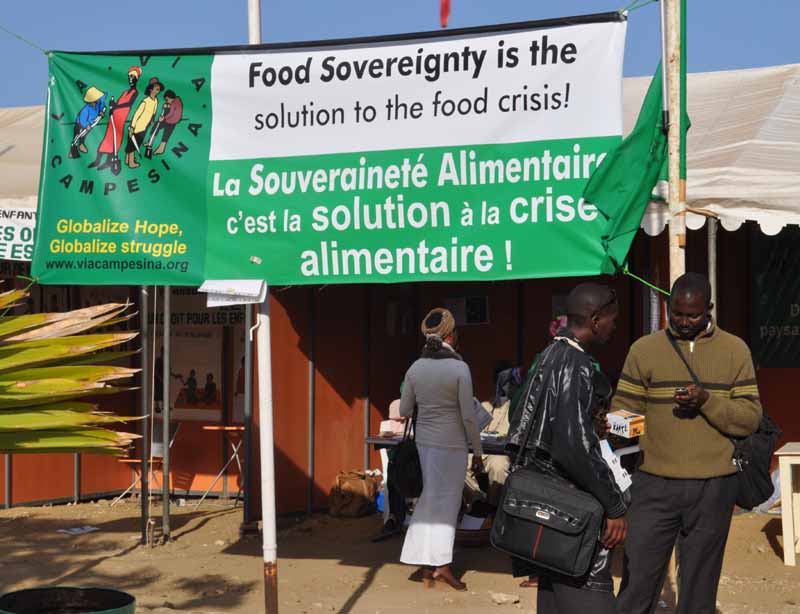 “No to agriculture as a commercial item – yes to a democratic, transparent and responsible monetary and financial system”.
“No to agriculture as a commercial item – yes to a democratic, transparent and responsible monetary and financial system”.
This banner was closely followed by that of Via Campesina:
“Food Sovereignty is the solution to the food crisis”.
All along the way of the march, various slogans could be heard: “Don’t touch my land” , – “The land is life” ou or “The land is my life”., Next in line came a banner reading : “Land grab in Africa – Dangers and Challenges” Exchange of experience of three continents – Working out resistance strategies”.
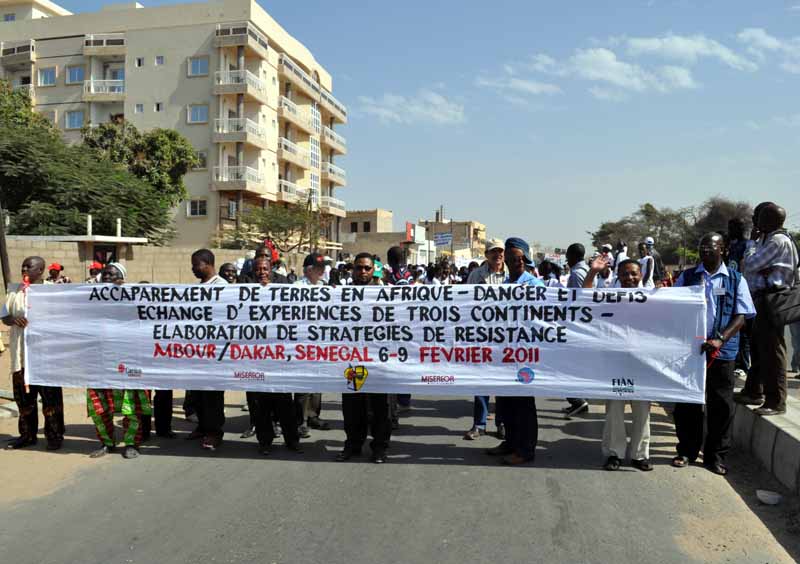
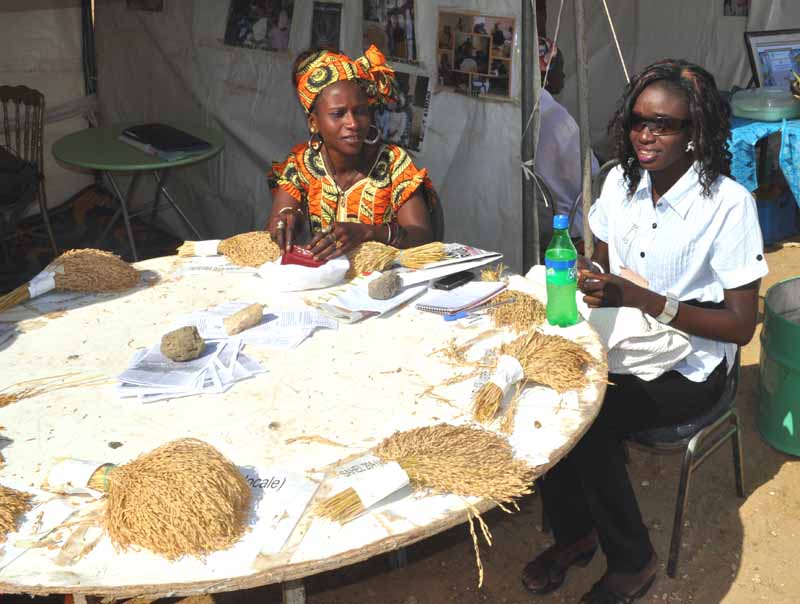 During my round among the stalls the following days I was impressed by the vast attendance of West African farmers’ organisations and associations. The Senegalese, women and men, had mobilised their ranks en masse, i.e. the rural women who had come to advocate the defence, promotion and sharing of different rice seed varieties.
During my round among the stalls the following days I was impressed by the vast attendance of West African farmers’ organisations and associations. The Senegalese, women and men, had mobilised their ranks en masse, i.e. the rural women who had come to advocate the defence, promotion and sharing of different rice seed varieties.

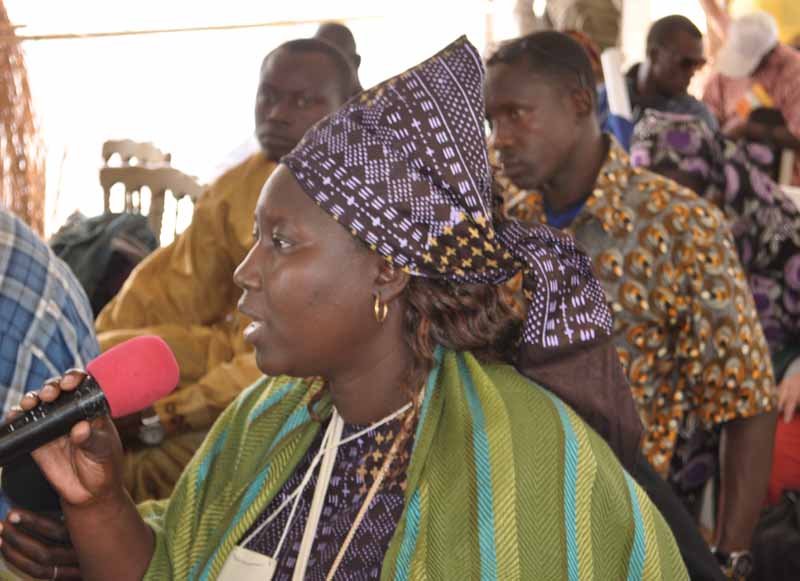 On Thursday, February 10th a very interesting workshop was organised, chaired by Ibrahim Coulibaly of the CNOP (National Committee of professional farmers’ organisations of Mali) and Mariam Bassey of Friends of the Earth, Nigeria, around the subject of food sovereignty. Here again the women did not play second fiddle, but stood up to ably defend their cause, « women’s access to land »
On Thursday, February 10th a very interesting workshop was organised, chaired by Ibrahim Coulibaly of the CNOP (National Committee of professional farmers’ organisations of Mali) and Mariam Bassey of Friends of the Earth, Nigeria, around the subject of food sovereignty. Here again the women did not play second fiddle, but stood up to ably defend their cause, « women’s access to land »
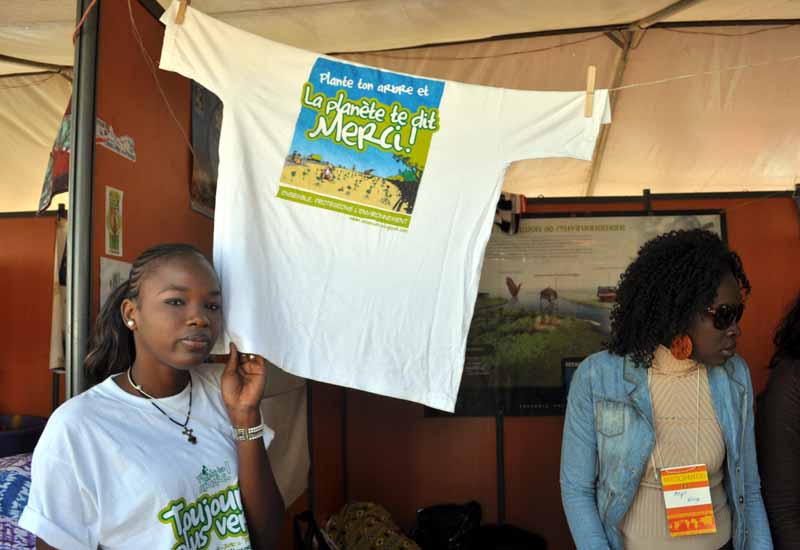
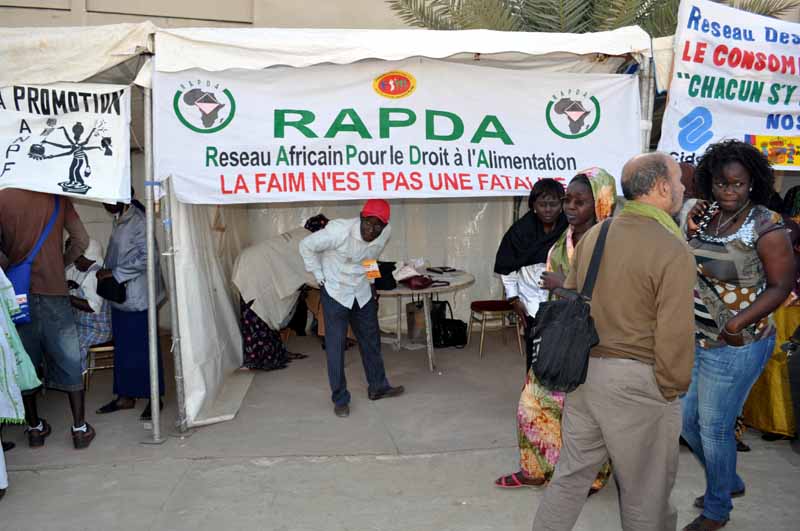 LNor was the protection of the environment absent from the Forum. un stand de l’Oceanium de Dakar (a scuba-diving marine centre and an environmental protection association, led by Haïdar El Ali) : one of the major defendants of food sovereignty of Senegal took part. were also expressed in the concerns and commitments voiced by the farmers. With the threat of agrifuel it is urgent to look for alternative financing of the carbon trading system. This trade will give wings to multinationals and let them fly ahead with polluting or buying up African land. An answer must be found to the question “How to lend support to poor farmers, who have neither cart, nor mule, to help them restore soil fertility by installing water retention stone lines on the fields and producting of organic fertiliser?”
LNor was the protection of the environment absent from the Forum. un stand de l’Oceanium de Dakar (a scuba-diving marine centre and an environmental protection association, led by Haïdar El Ali) : one of the major defendants of food sovereignty of Senegal took part. were also expressed in the concerns and commitments voiced by the farmers. With the threat of agrifuel it is urgent to look for alternative financing of the carbon trading system. This trade will give wings to multinationals and let them fly ahead with polluting or buying up African land. An answer must be found to the question “How to lend support to poor farmers, who have neither cart, nor mule, to help them restore soil fertility by installing water retention stone lines on the fields and producting of organic fertiliser?”
Networking proved its efficiency. Not surprisingly several network organisations were present at the Forum, for instance the FIAN (Foodfirst Information and Action Network), andThe African Network for the Right to Food, ) et le RAPDA (Réseau Africain pour le Droit à l’Alimentation) which came with the motto “Famine is not a fatality”. Such organisations (not to forget our SEDELAN with its weekly newsletter circulated to nearly 3 800 correspondents!) can only gather strength from the Forum.
Much remains to be said about the event (as well as about the 12th International Fair of Agriculture and Animal Husbandry, (FIARA) taking place at the same time. We shall return to both in the coming weeks.
Koudougou February 13th 2011
Maurice Oudet
Director SEDELAN









